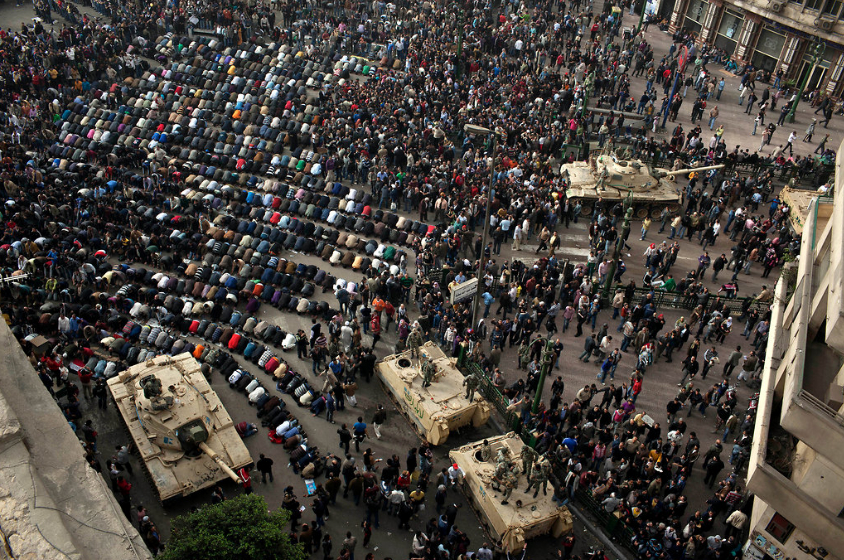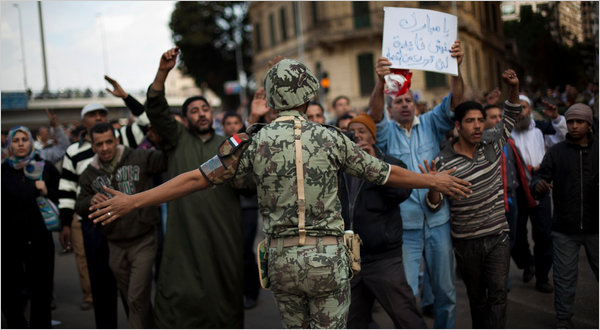This is a bit of a break from the usual whimiscal and light hearted posts that I seem to have been obsessed with lately, but Peace Magazine recently published an article that my mentor Barry Wellman, my colleague Xiaolin Zhuo, and I wrote about the revolts that rocked Egypt early this year and the role that information and communication technologies played. With no arrogance intended, I think it's an important read that takes a sobering look into the recent debate of social media's organizing capacity.
 T-shirts for sale in Cairo commemorating the January 25, 2011 revolution. Photo by Zeynep Tufekci. Used by permission
T-shirts for sale in Cairo commemorating the January 25, 2011 revolution. Photo by Zeynep Tufekci. Used by permission
“What brought Hosni Mubarak down was not Facebook and it was not Twitter. It was a million people in the streets, ready to die for what they believed in,” New York Times columnist Thomas Friedman recently proclaimed.
Friedman appears to have had an either/or dichotomy in mind when assessing the Egyptian revolt that started in January 2011. That’s an oversimplification, ignoring not only the lack of opposition from the elites, military, and US government, but also the role of social media and the organized groups and informal networks that brought people to the streets. It’s clear that social media such as Facebook played important roles in transforming organized groups and informal networks, establishing external linkages, developing a sense of modernity and community, and drawing global attention. Their impact suggests that those concerned with the quest for democracy and peace should pay more attention to the explicit and implicit effects of these social media. Read the full article here.




